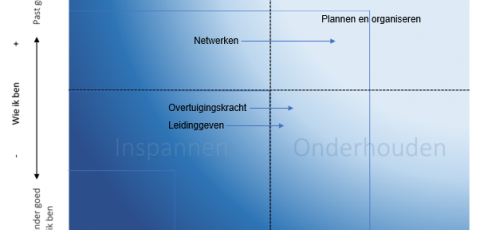Empathy in leadership, overrated?

Personality traits in themselves are not 'right' or 'wrong'. Yet some traits are far more likely to be perceived as purely 'positive' than others.
Personality traits in themselves are not 'right' or 'wrong'. This is invariably told to our assessment participants during feedback sessions. And it is true. Each trait has advantages and disadvantages in a specific context, but is not inherently 'better' than the next. Yet some traits are experienced as purely 'positive' far more often than others. Some stand out, such as 'assertiveness' and 'empathy'.
Explanations for this additional positive appraisal of some traits have been searched for many times. For example, Susan Cain writes in her book Quiet' (the power of introverts in a world that can't stop talking) the social 'overvaluation' of assertiveness and extroversion in general is partly due to increasing urbanisation at the beginning of the 20th century.
The city' is said to lead to more casual and superficial contacts, and the social 'grease' of extraversion is an advantage in this respect - and therefore a more desirable characteristic than introversion.
Although some questions remain unanswered by this explanation - for example, why does introversion receive more appreciation in Asia than in the West when there are also large cities there - it does seem to be overvalued in the West. Who is looking for a nice counterpart for the the more assertive, the better- these, I recommend Susan's 'Quiet', but also the work of Jeffry Wijnberg, such as his 'Anti-assertiveness book'.
I want to talk about empathy and leadership. Anyone searching for empathy and leadership will find roughly a 10:1 ratio: ten articles pro-empathy (empathy is essential, empathy is the most important leadership skill, the empathetic leader is the best leader, etc, etc.) against one contra. Here too, there seems to be a similar social overvaluation. This perhaps too strong valuation is very noticeable during conversations with assessment participants. Being less empathic is usually experienced as disappointing while the opposite is only seen as a good thing. And that is a pity for many people. If only because a quarter of the population is less than average empathetic. Just imagine: an enormous group of people whose quality gets little recognition!
Looking at a variety of leaders, from coordinators and department heads to directors and managers, we see a somewhat more nuanced story. The frequent observation of executives in assessment situations gives the following impressions, among others, in the area of empathy:
- Executives who above-average empathy They are very good at sensing the 'undercurrent' because they actively explore the other person's perspective by asking questions, probing and 'bridging'. They usually run the risk of giving too much priority to 'the relationship' and (unconsciously) lose sight of business/objective interests.
- Executives who below-average empathy are very good at objectifying situations and are better than empathic leaders at allowing business objectives or interests to prevail over the sensitivities involved. However, they run the risk of being too insensitive to underlying emotions and sensitivities and, as a result, of failing to gain real acceptance and support for decisions.
Perhaps it is better to say that a leader sufficient to be empathetic, but it doesn't seem to be a matter of the more empathetic, the better. Both too little and too much empathy seem to be serious pitfalls for an executive. Perhaps the dull, graying 'average' isn't so bad after all...(?)










































